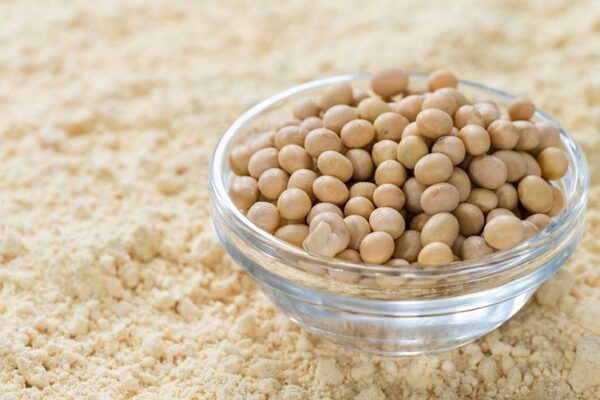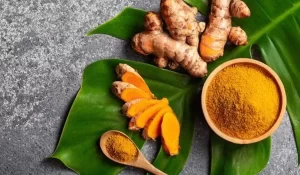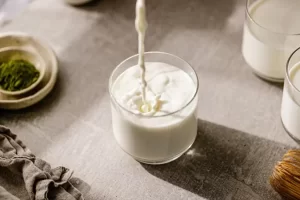Last updated on March 15, 2023
Getting enough protein is instrumental in muscle building. But if you don’t consume animal proteins for some reason, you may be hard-pressed to find a decent plant-based alternative.
Soy protein makes for a fine plant-based source of protein to consider. Our guide will help you navigate through the wide range of soy protein powders on the market.
Key Benefits of Using a Soy Protein Powder
Compared to other types of protein, protein from soy is:
- Vegan-friendly Soy protein is among the few plant-based proteins that have a complete essential amino acid profile.
- Lactose-free It doesn’t foster protein synthesis as well as whey or casein, but soy protein works for people with lactose intolerance.
- Gluten-free Soybeans contain no gluten, which makes soy protein an acceptable option for people with gluten sensitivity.
- Highly digestible Protein digestibility-corrected amino acid score (PDCAAS) gives soy protein the digestibility rate of 1 – same as animal source proteins have.
It’s time we’ve learned a bit more about soy protein.
What Soy Protein Is
Soy protein comes from soybeans, a nutritional staple from East Asia that has become popular around the world. Like many legumes, soybeans are high in protein. And soy serves as the core component in such protein-rich plant-based milks Australia most famous in the world.
After refining, soy becomes the base ingredient for making soy protein powders.
But although they all come from soy, soy protein powders vary in:
- Filtration degree.
- Extraction method.
- Fermentation level.
These three factors are the most important ones for you to consider when buying. Let’s go over all of them in detail.
Filtration Degree: Soy Protein Concentrates vs Isolates
There are two major types of soy protein powder: soy protein concentrate and soy protein isolate. The key difference between the two is the degree of filtration used during production.
To produce soy protein concentrate, the manufacturer first aims to reduce the fat content in soybeans to a bare minimum. From there, the extraction process takes out carbs and fiber, until the resulting moisture-free substance contains at least 70% protein.
Soy protein isolate is the product of the above process taken a step further. The use of advanced filtration takes even more carbs and fiber out of soy protein concentrate. And the protein content goes up to the whopping 90%.
Protein isolates are almost always more digestible and pure than concentrates.
Extraction Method: Alcohol vs Water Extracted Soy Protein
The extraction method during production determines the amount of isoflavones that make it to the soy protein powder. And since extraction methods range, so does the isoflavone content.
Alcohol extraction reduces the amount of soy isoflavones to less than 5%. Likewise, water extraction retains up to 45% of soy isoflavones. Both these methods are in use for making soy protein concentrates and soy protein isolates alike.
As phytoestrogens, soy isoflavones can raise estrogen levels, helping women who suffer from infertility, menopause symptoms, and osteoporosis. This same quality, however, makes soy isoflavones potentially harmful to males and women with elevated estrogen.
As goitrogens, soy isoflavones can interfere with iodine uptake by the thyroid gland and suppress the production of thyroid hormones. This makes soy isoflavones potentially beneficial for people whose thyroid is overactive. But this makes them a hazard for people with goiter and hypothyroidism.
Choose alcohol-extracted forms of soy protein, unless soy isoflavones clearly benefit you.
Fermentation Level: Fermented vs Non-Fermented Soy Protein
In non-fermented raw form, soy contains elevated levels of phytates and oxalates. These compounds can impede the absorption of minerals like zinc and iron. Non-fermented soy also comes with trypsin inhibitors that make protein digestion inefficient. Likewise, fermented soy has none of these effects.
As you can tell, soy protein powders made of fermented soy shine as a superior option.
Choose Non-GMO, Organic, and All-Natural Soy Protein Powders
More than 90% of soy products on the market are genetically modified. And most soy on the market is also non-organically sourced. To make matters worse, many brands fill soy protein powders with harmful artificial flavors, sweeteners, preservatives, and other toxic substances.
You’ll be wise to go with the soy protein powders that are free of all these hazardous factors.
Top Soy Protein Powders You Can Check Out
If you want some suggestions, check soy protein powders from these brands:
- BulkSupplements.
- Bob’s Red Mill.
- Six Star Pro Nutrition.
- MHP.
- Universal Nutrition.
FAQs
Is Soy Protein Powder Superior for Vegans?
Soy is a potent source of protein for vegans. But there are many other plant-based proteins that vegans can thrive on, like pea and brown rice proteins.
Can Taking Soy Protein Decrease Your Testosterone Levels?
Soy contains phytoestrogens that may have a testosterone lowering effect in males. There’s no conclusive evidence that proves it, though.


















Be First to Comment